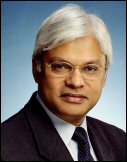Source: House Committee on Oversight and Government Reform
 Allegations of fraud and ballot tampering in Afghanistan’s disputed October presidential election have significantly undermined the legitimacy of the Karzai government. In testimony before the House Committee on Oversight and Government Reform, Ashley Tellis offers an assessments of what went wrong during the recent election and what the United States should do next.
Allegations of fraud and ballot tampering in Afghanistan’s disputed October presidential election have significantly undermined the legitimacy of the Karzai government. In testimony before the House Committee on Oversight and Government Reform, Ashley Tellis offers an assessments of what went wrong during the recent election and what the United States should do next.
What went wrong with the Afghan election: the election was undoubtedly deeply flawed. Contrary to popular opinion, however, the election was far from an unmitigated disaster.
- However extensive the fraud may have been, very few individuals—in Afghanistan or outside—truly believe that any of President Karzai’s competitors could have legitimately earned more votes than he did to produce a fundamentally different result. His reelection, despite all the shenanigans that took place, therefore broadly reflects Afghan preferences.
- The provincial council elections, which took place at the same time, were successful at the local level in the sense that power was peacefully transferred in a country where such a concept is virtually unheard of, suggesting that democratic ideas are finally starting to take root.
U.S. Policy Recommendations: the United States must firmly recommit itself to the war in Afghanistan.
- Despite the damage his credibility has suffered, the United States has no choice but to accept Karzai as Afghanistan’s principal representative and to work with him for a better second term—because that is fundamentally in American interests.
- President Obama and his administration must commit to staying involved in the country over the long term. Without such a commitment, the insurgents will simply wait out the Coalition. Ordinary Afghans will have little incentive to side with an outside military force that is scheduled to depart shortly.
- The United States must take care to rebuild its relationship with Karzai. Softening the (at times) withering criticism of his regime would go a long way toward rebuilding trust.
- The United States should foster a strong American civil-military partnership in Kabul, ensuring close coordination between uniformed military officers, diplomats, and officials involved in reconstruction and development.
- Afghanistan must continue to receive consistent, government-wide attention from American policymakers.





